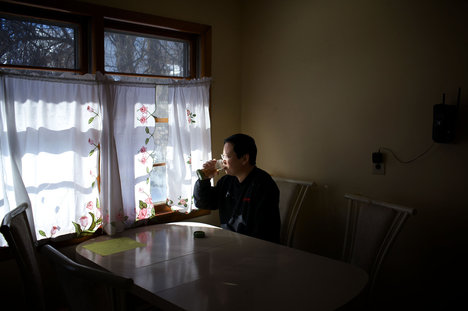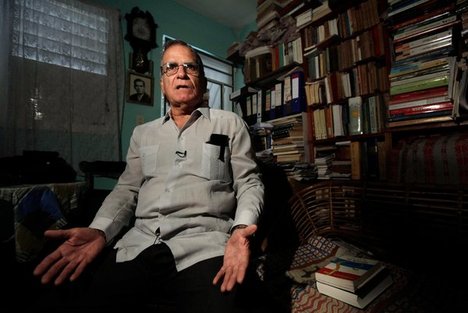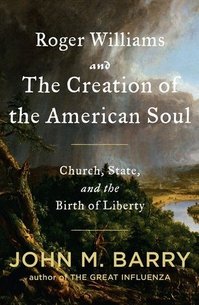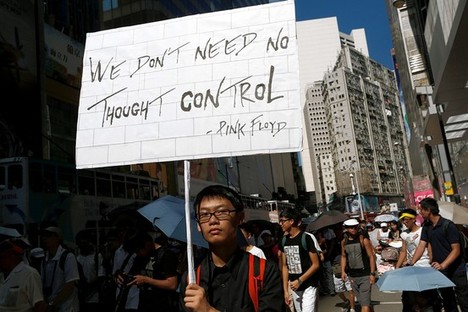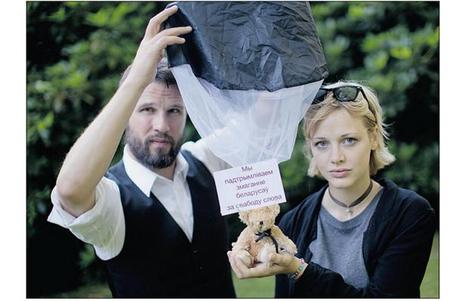(p. A16) There are few role models for former Muslims, . . .
One group . . . is Ex-Muslims of North America, . . .
Members of the group, founded last year in Washington and Toronto, recognize that their efforts might seem radical to some, and take precautions when admitting new members. Those interested in joining are interviewed in person before they are told where the next meeting will be held. The group has grown quickly to about a dozen chapters, in cities including Boston, Chicago, Houston, New York and San Francisco.
One of the group’s founders who was at the conference, Sadaf Ali, 23, an Afghan-Canadian, said that she had once been “a fairly practicing Muslim.”
During childhood, she said, “I was always fairly defiant.” As she grew older, she struggled with depression, and she thought that praying more and reading the Quran would help. She became more religious and looked forward to a traditional life. “I thought my life was sort of set out for me: get married, have children,” Ms. Ali said. “I might go to school. I’ll have a very domestic life. That’s what my family did, what my forefathers did.”
But as a university student, her feelings began to change.
As I started to investigate the religion, I realized I was talking to myself,” Ms. Ali said. “Nobody was listening to me. I had just entered the University of Toronto, and critical thinking was a big part of my studies. I have an art history and writing background, and I realized every verse I had come across” — in the Quran — “was explicitly or implicitly sexist.”
Quickly, her faith crumbled.
“So in 2009, I realized there probably is no God,” she said. “What is so wrong in having a boyfriend, or having premarital sex? What is wrong with wanting to eat and drink water before the sun goes down during Ramadan? What is so wrong with that? I couldn’t handle the cognitive dissonance anymore.”
. . .
The members of Ex-Muslims are adamant that they respect others’ right to practice Islam. The group’s motto is “No Bigotry and No Apologism,” and text on its website is inclusive: “We understand that Muslims come in all varieties, and we do not and will not partake in erasing the diversity within the world’s Muslims.”
But they are equally adamant that it is still too difficult for Muslims inclined to atheism to follow their thinking where it may lead. Whereas skeptical Christians or Jews can take refuge in reformist wings of their tradition, religious Muslims generally insist on the literal truth of the Quran.
“I would say it’s maybe 0.1 percent who are willing to challenge the foundations of the faith,” said Nas Ishmael, another founder of the Ex-Muslims group who attended the conference.
For the full story, see:
MARK OPPENHEIMER. “Leaving Islam for Atheism, and Finding a Much-Needed Place Among Peers.” The New York Times (Sat., MAY 24, 2014): A16.
(Note: ellipses added.)
(Note: the online version of the story has the date MAY 23, 2014.)

